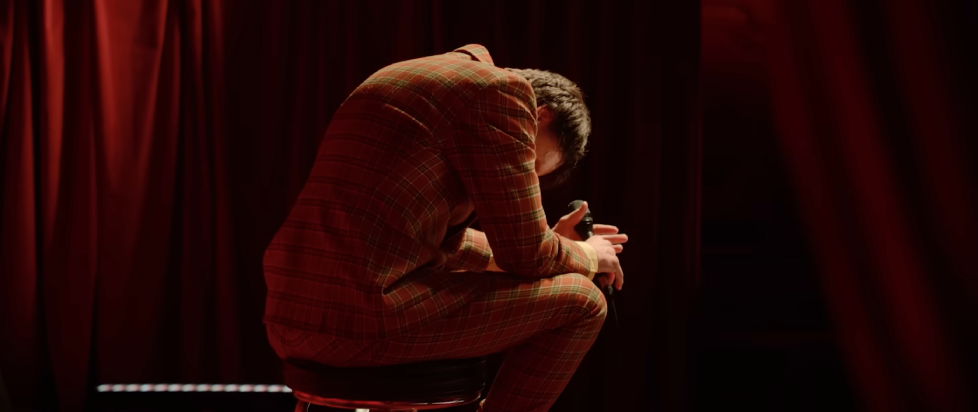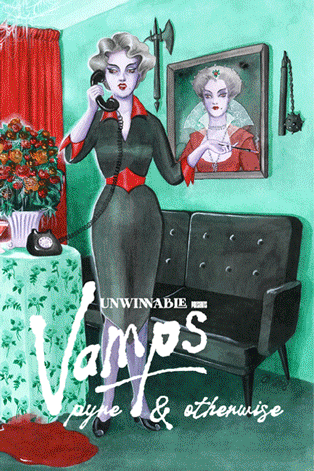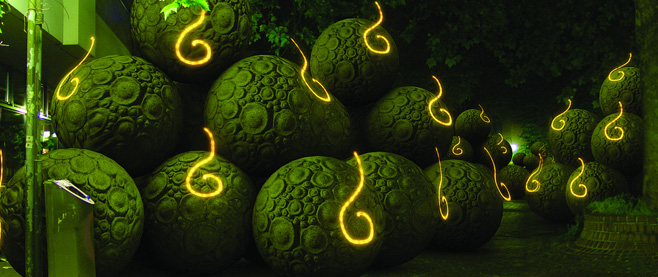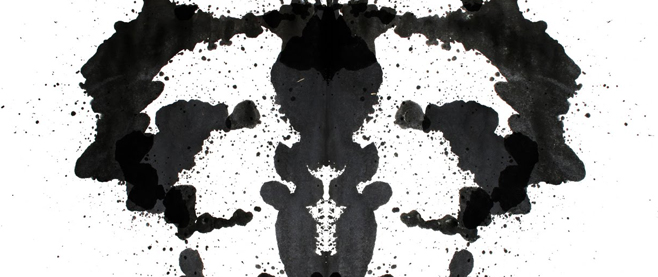
The Compassion of Baby Reindeer
It’s time we talked about Baby Reindeer. Netflix’s latest outing is an autobiographical black comedy that ratchets the tension up to 12 (zooming right past 10), leaving little room for the viewer to catch their breath. Creator and star Richard Gadd manages to jam-pack themes such as heartbreak, lust, obsession, self-loathing, denial, mental illness, sexual identity, and acceptance in seven bite-sized episodes, all clocking in around the 30-minute mark. While Gadd utilizes his wit and dark humor to unpack his personal trauma and weave a bigger picture about healing when questions are left unanswered, the internet as a collective has been caught in an unnecessary web of unveiling real-life inspirations. Let’s dive in.
But before we do, I’d like to issue heavy trigger warnings to all. This story involves sexual assault, stalking, transphobia, and heavy drug use.
Baby Reindeer is the autobiographical tale of barman Donny Dunn (Gadd), whose ambitions of stardom as a comedian are stalled by one minor detail – he’s not funny. In fact, he’s so unfunny that quick cuts to his standup are cringe-inducing and, quite frankly, sad. Hence why he hides clips from his mates at the pub in between incessantly watching for any likes or comments of praise. He’s a man in his late twenties, trapped between stubborn aspirations and the futility of his efforts. While working the bar, Donny notices a distressed patron one day and decides to give her a Diet Coke on the house. This thoughtless kindness propels Donny into a year-and-a-half-long complex stalker scenario involving over forty thousand emails, seven hundred tweets, three hundred voicemails, and over one hundred handwritten letters. Martha, played by Jessica Gunning, is someone who claims to be a lawyer and relies on her knowledge of the law to continue her harassment and evade official wrongdoing. By episode 2, a game of cat-and-mouse is afoot, and Donny can’t outrun his pursuant.
While Gunning navigates her character’s complexities with perfection, and so much focus is devoted to establishing her as someone with flaws and sympathetic traits, this ultimately isn’t her story. Yes, it is the overt outrageous actions of her character that have the internet in a tizzy, but we should be focusing on the story of how this encounter uncovered what was always beneath Donny’s surface. And therein lies the rub.
Two things immediately leaped out when I was first presented with Donny as a character: First, his humor is unamusing, and second, he’s not that likable. To be honest, Donny is kind of a prick. He’s arrogant and very condescending; he hides the fact that he has romantic feelings for a trans woman because he’s afraid of what society will think of him as a man. Above all else, he leads Martha on even after he quickly assesses she has developed an overattachment to him. He admits to loving the attention she gives him. I couldn’t stand the sight of him and his glum personality. Halfway through episode 3, I asked aloud, “Why is he like this?” Donny is so deprived of self-worth that he’s willing to put himself in harm’s way just for a morsel of external validation. I received an answer in the very next episode.

Episode 4 is a crucial turning point in the show. It’s the essential key that is required to unlock the deeper understanding of Baby Reindeer. There is a reason why social media has been focused on the real-life Martha and her antics. There is a reason why article after article has been written about Netflix and Gadd and how much of the truth is actually told. It’s the same reason my hands shake unsteadily as I type.
We find Donny struggling with the decision to report Martha to the police. “Martha saw me the way I wanted to be seen. So when it came to the point of going to the police, I couldn’t stand the irony of reporting her but not him. There was always a sense that she was ill, that she couldn’t help it, whereas he was a pernicious, manipulative groomer.” Over the next 30 minutes, we relive Donny first moving to London and being groomed by a television writer he admired. The writer succinctly sniffed out Donny’s insecurities and low self-worth, and he capitalized on them. Filmed with the visceral emotions of betrayal, helplessness, and self-hatred swelling in the background, this episode leaves the viewer feeling like an active participant during Donny’s worst moments. With each assault, Donny woke up at the hands of someone whose opinion he valued, which left an agonizing ache within my core. Whatever scrap of dignity Donny had to hold onto was torn away time and time again. As a viewer you want to stop, to shut it all out, to become devoid of all emotion and feeling because the pain you are witnessing is far too much to sustain. And that is what Donny does. That is what Gadd did.
There is a double-edged sword handed down to male survivors of abuse and harassment. They are either shamed or emasculated for reporting a female abuser or will have their sexuality questioned when reporting a male. The stigma has permeated modern society, leaving abuse unreported and unrecognized even though it is estimated that 1 in 6 men have been assaulted or abused. Survivors are often left to face symptoms such as self-blame, PTSD, and suicidal ideation alone while turning to drugs and alcohol as coping mechanisms. Baby Reindeer does a fantastic job of interweaving these nuggets of information into the wider narrative in Donny’s final on-stage monologue, where he breaks down in front of a live audience. “I’ve spent my whole life running away. And this… this competition, this was just another hundred meters in a marathon I was never gonna finish alive.”
It’s easy to run away, isn’t it? Running away is so much more preferable to staying and facing the really difficult bits. And that’s what the internet has done. We were given a fairly straight narrative about male survivors of assault and harassment, but because we would have to do some exploration both internally and as a society, unpacking and unlearning behaviors along the way, we decided the time was better spent uncovering the real Martha and poking a bit of fun at her live interviews. Or start a discourse on what “based on a true story” means. Or track down Gadd’s ex-girlfriend to verify they are indeed trans. We’d rather do anything but have an honest conversation about a stigma that begs to be broken.

Which is rather a shame because outside of the high-octane moments of stalking and voyeurism, the show excels at leaving space for quiet reflection and healing. After Donny’s breakdown is uploaded and goes viral, Martha threatens to reveal his rape and budding sexuality to his parents. In a moment of panic, he rushes back to Scotland to open up to his parents with all of his open wounds on full display. Donny all but pleads with them to understand and accept his situation, noting that he kept everything hidden until that moment because he didn’t want his folks to think less of him. The camera then pushes into his father’s stern face as he asks, “Would you see me less? Would you see me as less of a man? I grew up in the Catholic Church.” As realization dawns on Donny and silent tears fall from his father’s eyes as he glances away, the full weight of the moment reaches a crescendo as father and son, both survivors, embrace. It is understood that this is most likely the first time each man is truly seeing the other as they are, broken but rebuilding bit by bit.
I wish we could give this exchange the proper reverence it deserves. Although we only get a couple of glimpses of Donny’s dad to highlight his curmudgeonly exterior, the juxtaposing characteristics of father and son further signify the overarching premise of Baby Reindeer, which many survivors struggle with accepting – it is not their fault. Like Donny, many struggle with guilt, shame, and unanswered questions such as “Why me?” “What did I do wrong?” “Could I have stopped it?” “Am I a magnet for trouble?” I wish we as a society could have delved into why it’s important to speak up, not just for your mental health and healing but for other survivors as well.
It feels like we missed a transformative moment to signal to those living in the darkness of survivor’s remorse that we are ready to listen without judgment or reproach. The good news is we still can. Amidst all the chaos, we can educate ourselves on myths and facts with online resources from organizations such as 1in6 and Survivors Network. There are also opportunities to get involved by volunteering, donating, or fundraising. Most importantly, we can do our part to change the narrative in our own circles by stopping harmful jokes in their tracks and educating those around us.
Baby Reindeer can best be summed up as one man’s adrenaline-fueled journey to heal past traumas while navigating his present life in a cloud of unknowing. Gadd presents his story with unabashed brutality and heaps of self-deprecation. Donny does not come out looking like a saint (and Martha is not a simple superficial villain, but that is a whole other article), and perhaps that’s the point. After all, we’re just a bunch of humans trying to find meaning in the meaningless, inching our way toward nothing and everything, one validating click of a “like” button at a time.
———
Created in a lab with the essential ingredients of sugar, sass, and all things spooky, Brea is a film geek with a soft spot for 1940s noir. Her life’s goal is to move to New Zealand and live like a hobbit.





